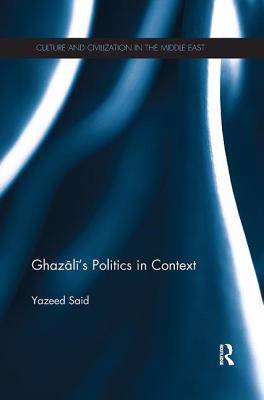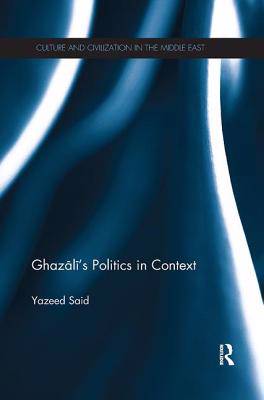
- Retrait gratuit dans votre magasin Club
- 7.000.000 titres dans notre catalogue
- Payer en toute sécurité
- Toujours un magasin près de chez vous
- Retrait gratuit dans votre magasin Club
- 7.000.0000 titres dans notre catalogue
- Payer en toute sécurité
- Toujours un magasin près de chez vous
Description
Imam Abü Hamid al-Ghazalı is perhaps the most celebrated Muslim theologian of medieval Islam yet little attention has been paid to his personal theology. This book sets out to investigate the relationship between law and politics in the writings of Ghazalı and aims to establish the extent to which this relationship explains Ghazalı's political theology.
Articles concerned with Ghazalı's political thought have invariably paid little attention to his theology and his thinking about God, neglecting to ask what role these have contributed to his definition of politics and political ethics. Here, the question of Ghazalı's politics takes into account his thinking on God, knowledge, law, and the Koran, in addition to political systems and ethics.
Yazeed Said puts forward the convincing argument that if Ghazalı's legal and political epistemology provide a polemic analogous to his writings on philosophy, for which he is more famed, they would reveal to us a manifesto for an alternative order, concerned with a coherent definition of the community, or Ummah. This book will be an invaluable resource for students and scholars of the Middle East, political theology and Islamic studies.
Spécifications
Parties prenantes
- Auteur(s) :
- Editeur:
Contenu
- Nombre de pages :
- 224
- Langue:
- Anglais
- Collection :
Caractéristiques
- EAN:
- 9781138086524
- Date de parution :
- 31-05-17
- Format:
- Livre broché
- Format numérique:
- Trade paperback (VS)
- Dimensions :
- 156 mm x 234 mm
- Poids :
- 317 g

Les avis
Nous publions uniquement les avis qui respectent les conditions requises. Consultez nos conditions pour les avis.






